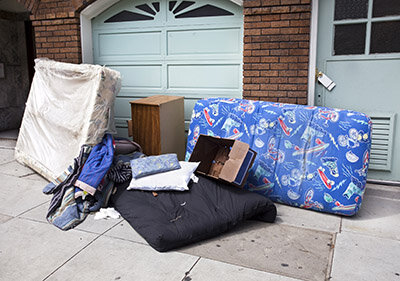The U.S. Marshals Service Updates for Executing Evictions in the District of Columbia
In the District of Columbia, a landlord cannot use self-help measures to kick out a tenant who is not paying rent or violating other terms of the lease. The landlord must use the legal process through the District’s Landlord Tenant Branch to obtain a judgment for possession of the property. If the landlord uses any self-help measures to evict a tenant, the landlord can be liable for wrongful eviction.
Once the landlord obtains a judgment for possession, that still does not give the landlord the legal right to kick the tenant out. Two days after the landlord obtains a judgment for possession, the landlord can file a Writ of Restitution, which authorizes the U.S. Marshals Service to schedule an eviction of the tenant. In the District, only the U.S. Marshals Service is responsible for executing evictions issued by the D.C. Superior Court judges. The writ issued expires after 75 days, that means if the U.S. Marshals Service cannot evict the tenant within 75 days, the landlord will have to ask the court to reissue the writ.
Once the writ is issued, the Landlord Tenant office will forward the writ to the U.S. Marshals office for scheduling. The tenant will be notified by first class mail with the scheduled date of eviction and will be given a minimum of two weeks’ notice of the eviction date. The U.S. Marshalls Service does not schedule evictions on Saturdays, Sundays, holidays, or judicial training days. Furthermore, the eviction will not be executed if there is precipitation falling or when the temperature is forecasted to fall below 32 degrees F within the next 24 hours. If weather delays occur, the U.S. Marshals Service will contact the tenant and discuss the anticipated delay and the eviction will be completed on the next available execution date.
When the execution is scheduled, the landlord must be available by phone or email and will need to be able to gain access to the property and change the locks while the U.S. Marshals Service waits. In a case of nonpayment of rent only, the tenant can satisfy the judgment by paying the full amount owed to the landlord prior to the U.S. Marshals Service arrival.
The landlord is responsible for having the necessary equipment for accomplishing the eviction. That means the landlord must hire the eviction crew in sufficient numbers. The U.S. Marshals Service sets minimum staffing requirements for residential eviction crews as follows: 25 person crew for a house; 10 person crew for a 1 bedroom apartment; 15 person crew for a 2 bedroom apartment; and a 20 person crew for a 3 bedroom apartment. If the landlord cannot meet the conditions required to execute the eviction, the writ will be canceled.
All housing providers, including people or companies that are landlords due to probate administration or foreclosure, the legal eviction process must be followed in order to property evict a tenant or an unauthorized occupant. At JLGI, our lawyers are experienced with the District’s eviction process and can assist you in evicting your tenant in accordance with the District’s regulations. Our lawyers can also assist landlords in complying with the District’s requirements in becoming a legal housing provider. Also, if you are a tenant that is going through the eviction process, you can speak with an experienced lawyer to discuss your options and to ensure your landlord is following the law. Contact JLGI to discuss your options.

